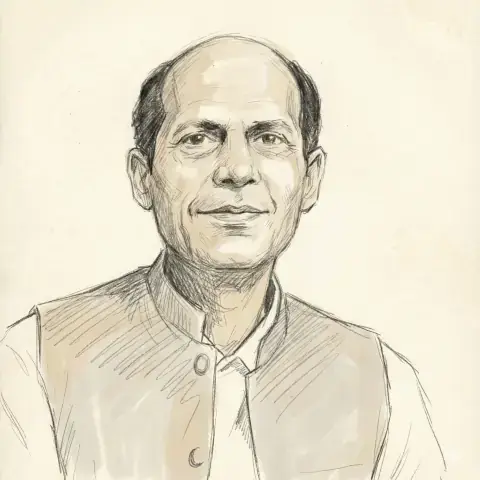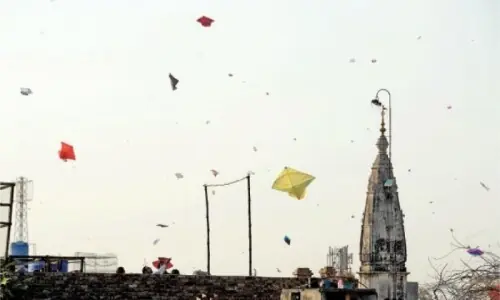• Says proposed law ‘travels beyond competence of parliament’
• PM Shehbaz says Alvi being more loyal to Imran than his ‘august office’
ISLAMABAD: Upping the ante in a standoff with the government over the question of elections, President Arif Alvi on Saturday returned a piece of legislation that aimed to regulate the suo motu powers of the chief justice, saying that the proposed law “travels beyond the competence of parliament” and can be assailed as “colourable legislation”.
The bill, titled Supreme Court (Practice and Procedure) Bill 2023, sought to curtail the powers of the CJP and also gives the right to appeal in all suo motu cases with retrospective effect. It sailed through the Senate on March 30, without being sent to the relevant standing committee, a day after being passed by the National Assembly.
In a note, shared on Twitter as well, the president said that he thought it fit and proper to return the bill in accordance with the Constitution, with the request for reconsideration in order to meet the scrutiny about its validity, in case of a legal challenge.
The president said Article 191 empowers the Supreme Court “to make rules regulating the practice and procedure of the court”. Under such enabling provisions of the Constitution, the Supreme Court Rules 1980 have been made and in force duly validated and adopted by the Constitution itself, he said, adding that these time-tested rules were being followed since 1980 and any “tinkering with the same may tantamount to interference with the internal working of the court, its autonomy, and independence”.
‘Trichotomy of power’
“Our Constitution is founded on the concept of trichotomy of power — three pillars of the state whose domain of power, authority, and functions are defined and delineated by the Constitution itself,” Mr Alvi pointed out. He said parliament has also been given the power under Article 67 that states “subject to the Constitution, a house may make rules for regulating its procedure and the conduct of its business….” He said Article 67 and 191 were akin to each other and recognise the autonomy and independence of each other respectively – barring interference of one into the other’s domain.
According to the president, the Supreme Court was an independent institution as visualized by the founding fathers that in Pakistan “independence of judiciary shall be fully secured”. With such an objective in view, Article 191 was incorporated and the Supreme Court was kept out of the law-making authority of parliament, he added.
He said the competence of parliament to make laws stems from the Constitution itself. “Article 70 relates to ‘introduction and passing of Bills’ with respect to any matter in the Federal Legislative List – enumerated in the Fourth Schedule of the Constitution. Followed and further affirmed are the provisions of Article 142(a) that parliament can make laws ‘with respect to any matter in the Federal Legislative List.”
He said Entry 55 of Part I of the Fourth Schedule while empowering parliament to make laws in respect of “jurisdiction and powers of all courts except the Supreme Court” especially excluded the Supreme Court. “Thus, the bill prima-facie travels beyond the competence of the Parliament and can be assailed as a colourable legislation,” he added.
He said the focus of the bill relates to the original jurisdiction of the top court, providing for the mode and manner for invoking it and providing appeal. “The idea may be laudable but can such a purpose be achieved without amending the provisions of relevant articles of the Constitution,” he questioned.
After the president returned the bill, the government is expected to table it in a joint session of parliament which will approve it after some possible changes. One of the amendments proposed a condition that at least a five-member bench would hear the constitutional cases, an informed source told Dawn. The bill, after its passage, would be sent to the president, and the president “shall give his assent within 10 days, failing which such assent shall be deemed to have been given”, according to Article 75.
‘Partisan president’
Meanwhile, PM Shehbaz Sharif took on President Alvi for returning the bill and accused him of belittling the office of the president. “President Alvi returning the Supreme Court Bill duly passed by parliament is most unfortunate,” he said, adding, “Through his conduct, he has belittled the august office by acting as a worker of the PTI, one who is beholden to Imran Niazi more than the Constitution & demands of his office,” the premier tweeted.
In a strong exception to the president’s move to return the proposed legislation, Climate Change Minister and PPP Senator Sherry Rehman said President Alvi has proved that “he is not the country’s president but the PTI’s secretary general even now”.
Mr Alvi has looked at “parliament’s every decision with the perspective of the PTI”, Ms Rehman said, underscoring that the president had already stated his stance on the matter in an interview before even receiving the said bill.
“The president is saying that this bill is outside the parliament’s authority? He kept running the President’s House like an ordinance factory for three and a half years — how can he be aware of the parliament’s powers?” she said.
Minister of State for Law Shahadat Awan told Dawn that President Alvi overlooked Article 175 (2) while forming his opinion. He said a right to appeal in suo motu cases had been provided under Section 5 of the bill in the interest of justice.
PDM spokesman Hafiz Hamdullah termed President Arif Alvi a “certified violator” of the Constitution and termed his move of not signing the bill passed by both houses an attack on the parliament.
PTI leader Fawad Chaudhry on the other hand asked the government to think and introduce a change in its politics instead of trying to amend laws upon a “few people’s wishes”. “The government should not make legislation subordinate to a few people’s wishes. After attempts to amend the Supreme Court rules, decreasing the president’s powers by amending the Elections Act (2017) is foolish legislation.”
Published in Dawn, April 9th, 2023


































